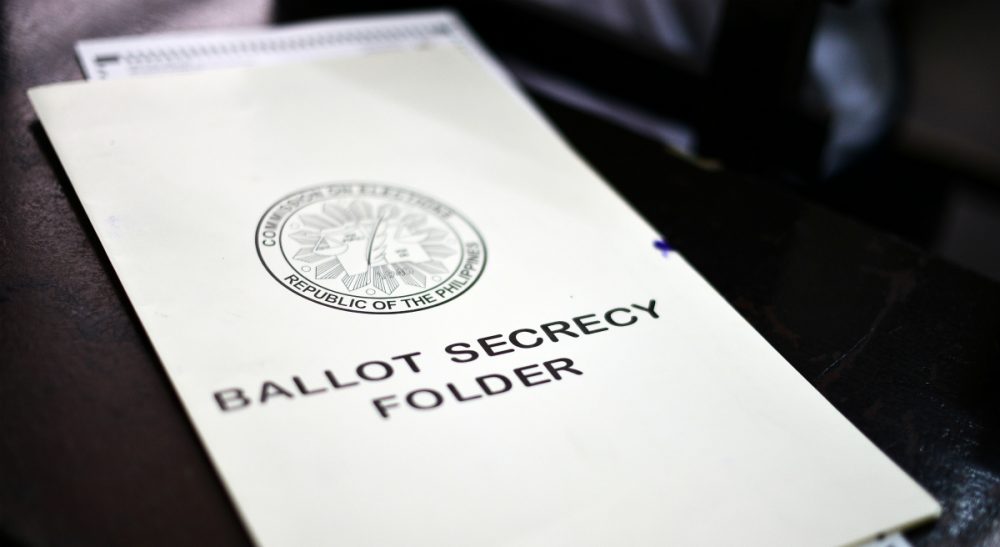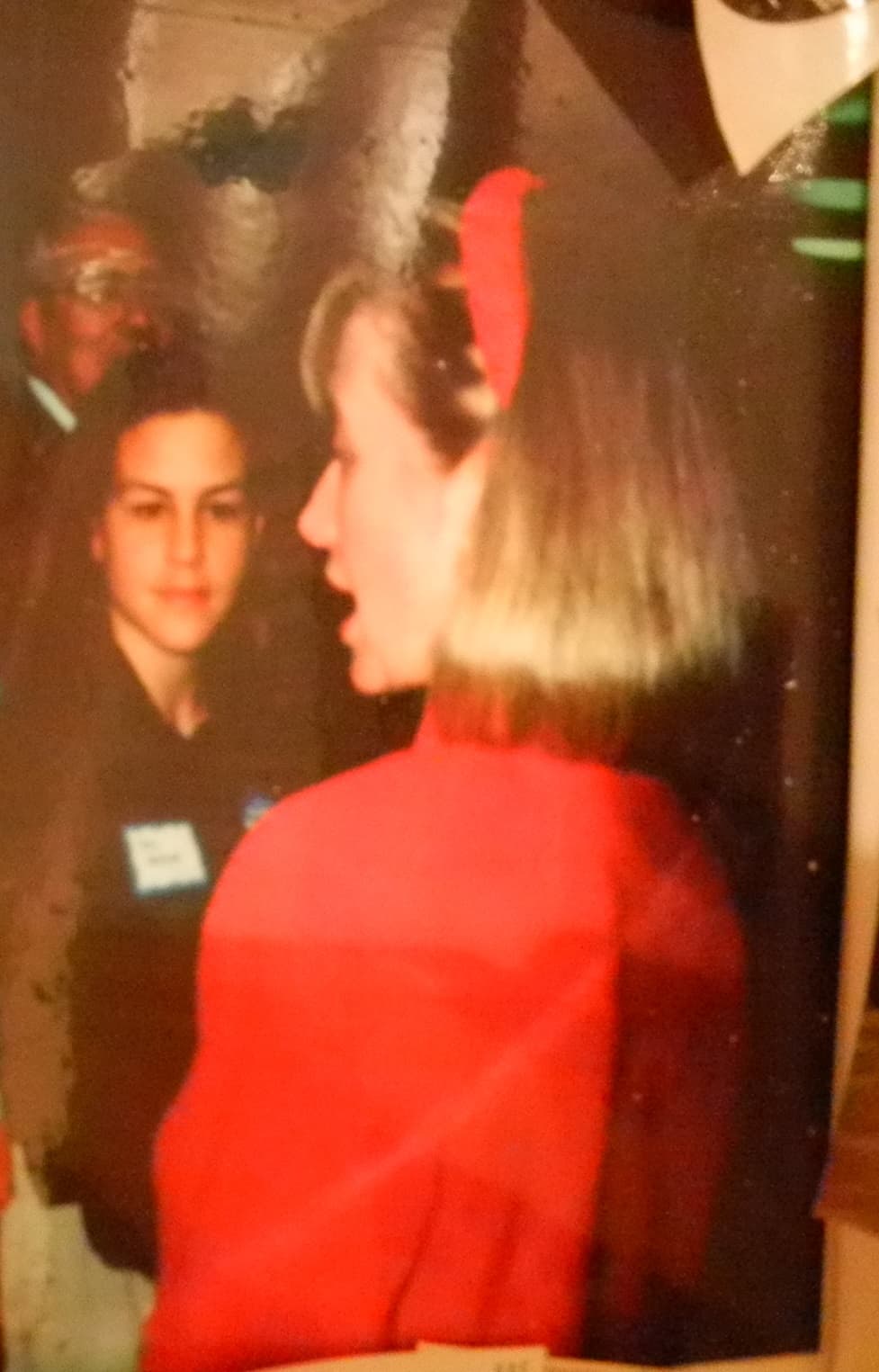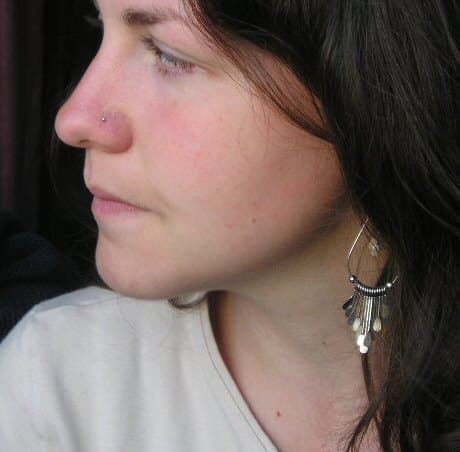Advertisement
My Super Tuesday Dilemma: What Would Dad Do?

The summer I turned 16, I got my first two jobs: working at Sweetwater’s Donut Mill and canvassing for the Kalamazoo Democratic Party. Donuts and democrats might seem an odd combination for a teenager, but it’s a perfect characterization of my childhood.
My dad taught political science at Western Michigan University for 37 years. He served as Kalamazoo County commissioner for a couple terms and managed the campaign of Mary Brown, our local state representative.
Growing up, I looked forward to Election Day as much as I did to my own birthday, especially during a presidential election.
Growing up, I looked forward to Election Day as much as I did to my own birthday, especially during a presidential election. Dad would take me to Mary Brown’s house to watch staffers running around filling in a precinct chart, fielding phone calls, and cheering when the television news colored another state blue.
I don’t remember learning about the branches of government or the political parties — it’s as though I was born knowing about them. Before I voted in my first election, Dad sat me down with a sample ballot and showed me how to fill it out. He made sure I knew about the various offices, what an alderman does, and what to do when I’d never heard of any of the candidates. He explained that I could vote along party lines if I wanted to, but he discouraged it, because it left no room for exceptions. One’s party affiliation is a label, he told me. Candidates are actual people.
When I was in the fourth grade, we attended rallies for Michael Dukakis and Jesse Jackson. Four years later, I met Hillary Clinton. We shook hands and talked briefly about soccer. I once interviewed my dad on local radio about the political process.
I might not have understood what a gift it was to have exposure to politics at such a young age, but I knew I was lucky to have parents whose beliefs felt right to me, regardless of how they identified politically.

Around the time I first started voting, I was overcome by cynicism about politics and about the country in general. In 2000, I was living in Ireland, and I stayed up all night until Al Gore’s victory was confirmed. I woke up around noon to what felt like a nightmare. That was the first time I experienced being an American abroad during an election. I found myself apologizing constantly, burning with shame, and then struggling with a deep sense of betrayal when the election was finally called in Bush’s favor.
In 2004, this time in Canada, I encountered even greater backlash when Bush won re-election. I plunged into a deep depression. The first time was an exceptional situation; this time, it was the voters’ fault. I lost faith in the political process, and Dad talked me off the ledge. He wasn’t thrilled about the outcome, either, but he knew how to take the long view of the cyclical nature of politics.
My ecstasy at Obama’s election in 2008 was tempered only by my father’s not being alive to see it. I could only cry and cast my gaze upward.
Advertisement
What I wouldn’t give to talk to Dad now.
What would he make of Trump? Would he laugh him off as a magnificent pot stirrer? As a constitutional law expert, what would he think about Cruz’s eligibility? What about filling Scalia’s seat? My father seems like the only person who could make sense of the melee.
The Massachusetts primary is just days away, and I haven’t decided who’ll get my vote, Clinton or Sanders. My head says Hillary, but my heart says Bernie.
Who would Dad vote for? In 2008, he’d have voted for Obama over Clinton, and not just because he predicted an Obama presidency after the 2004 DNC. Obama’s mix of compassion, insight and intelligence would have won Dad over. It’s the very combination of qualities my parents cultivated in themselves and tried to foster in me.
It wouldn’t be lost on my dad that Sanders picks up where Obama left off in terms of his campaign style and his mobilization of young voters, but Dad never bought into Camelot, and I’m not sure he’d buy into the revolution Bernie’s selling.
My ecstasy at Obama’s election in 2008 was tempered only by my father’s not being alive to see it.
Dad wouldn’t favor a legacy, be it Bush or Clinton. Still, if I had to guess, I think he’d vote for Clinton. He was a pragmatist, and he’d love the idea of a female president. But he would support people challenging the assumption that Clinton’s a shoo-in. Am I one of those people? I might be too afraid not to vote for Clinton, as much as I hate the way that sounds and feels.
Here’s my clumsy articulation of what I want to do: Vote for the person I want the president to be. Seems obvious, right? But that’s different than voting for the person I want to be president, subtly but importantly so. I think my dad would understand the distinction.
And in the end, I know that the only wisdom Dad would dispense is this: You don’t need me to tell you what to do.
